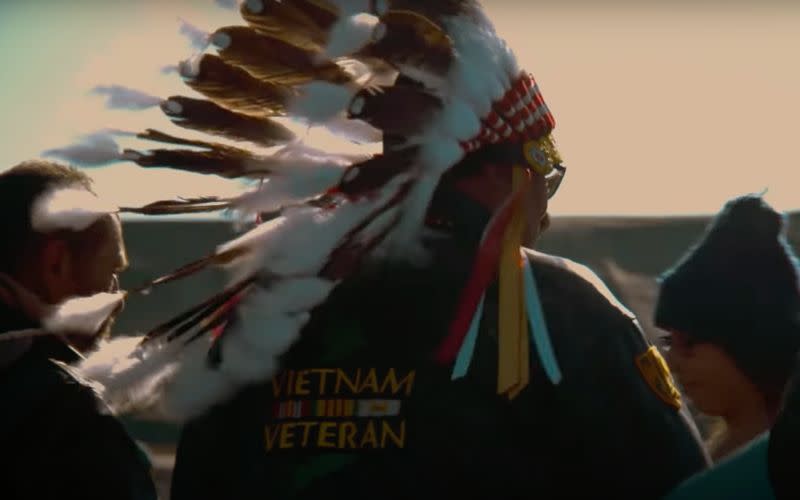Native American Veterans Receive Congressional Charter After 20 Years

The National American Indian Veterans (NAIV) organization will receive a congressional charter, marking the first Native American-dedicated group and the first veterans group to receive a charter in 15 years.
The charter was included in 2024 the National Defense Authorization and allows the organization to testify about veterans issues before Congress. It allows accreditation of NAIV members by the Department of Veterans Affairs to assist veterans and their families with benefit claims.
According to the Department of Veterans Affairs, charters — or laws passed by Congress that stipulate the mission, authority and activities of a group — have been granted to other nationalities and religious groups, but no Native American veterans organizations have received one. There are more than 140,000 Native Veterans in the United States, and advocates say a Native American charter is long overdue.
“We as veterans have been asking for this charter since 2004,” said Robert Dunsmore, Cheyenne River Sioux Tribe Veterans Service Officer, in a press release. “We, as American Indian veterans, hopefully will have a voice on matters that pertain to American Indian veterans.”
Originally established in 2004 on the Cheyenne River Sioux Tribal Reservation, NAIV originated from a 91-year-old Korean War veteran, Don Laudner, who focused on providing more representation for Native American veterans in their pursuit of VA benefits.
“It is a great honor to Headquarter the National American Indian Veterans on the Cheyenne River Sioux Tribe, and serve the needs of our brave Native American Veterans across the nation,” said Ryman LeBeau, Chairman of the Cheyenne River Sioux Tribe, in a press release. “We honor the sacrifices made by our ancestors before us, and our warriors – the Veterans who unwaveringly answer the call to stand up to protect the people and our future generations,”
American Indians and Alaska Natives serve in the U.S. Armed Services at a higher rate and are less likely to have health insurance or a service-connected to disability compared to other veterans, according to the Veterans Health Administration.
“We owe a great debt to Native American veterans for their service and sacrifice. I’m glad Congress is finally recognizing their service with a Congressional Charter. The NAIV is a critical resource that delivers assistance, and securing this charter ensures that Native veterans can access the benefits they have rightfully earned.” said New Mexico Senator Ben Ray Luján in a press release.
NAIV, endorsed by the National Congress of American Indians and other tribal and veterans organizations, now joins alongside other prominent veterans service organizations like the American Legion, Veterans of Foreign Wars, and Disabled American Veterans.
Joey Strickland, a retired colonel of Choctaw descent and NAIV’s chief of staff, told Military Times the group is looking to include better organization efforts, as well as grow its membership to represent a broader Indigenous community.
“We’re excited, but we now realize the hard work has to start,” Strickland said. “There’s just a lot of work that needs to be done.”
About the Author: "Native News Online is one of the most-read publications covering Indian Country and the news that matters to American Indians, Alaska Natives and other Indigenous people. Reach out to us at editor@nativenewsonline.net. "
Contact: news@nativenewsonline.net

